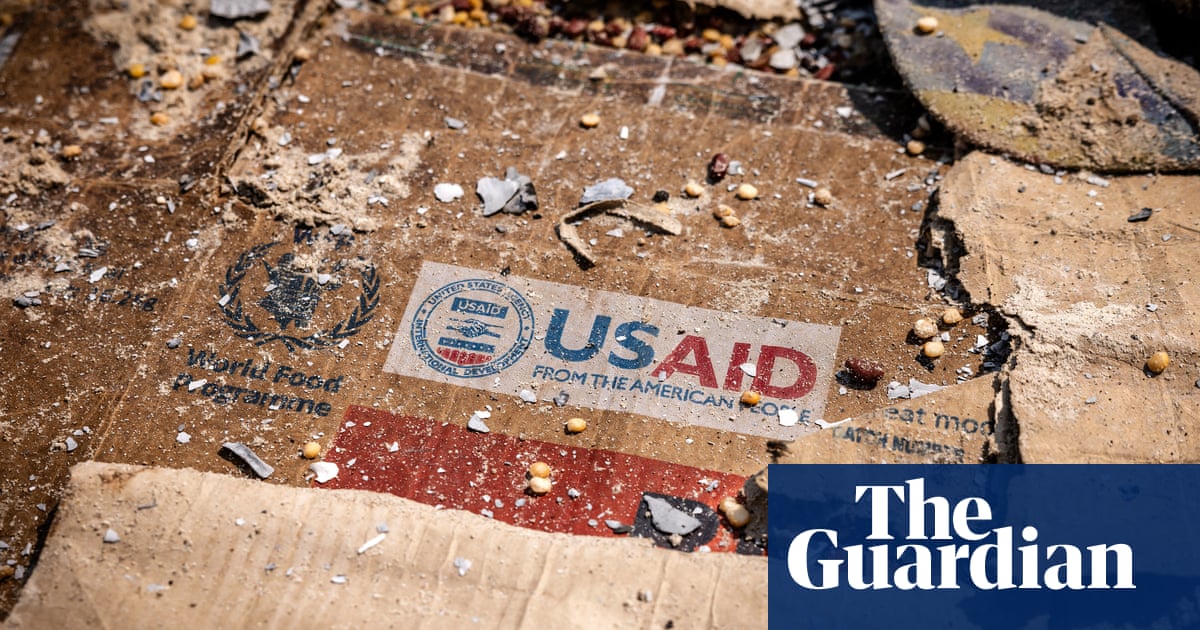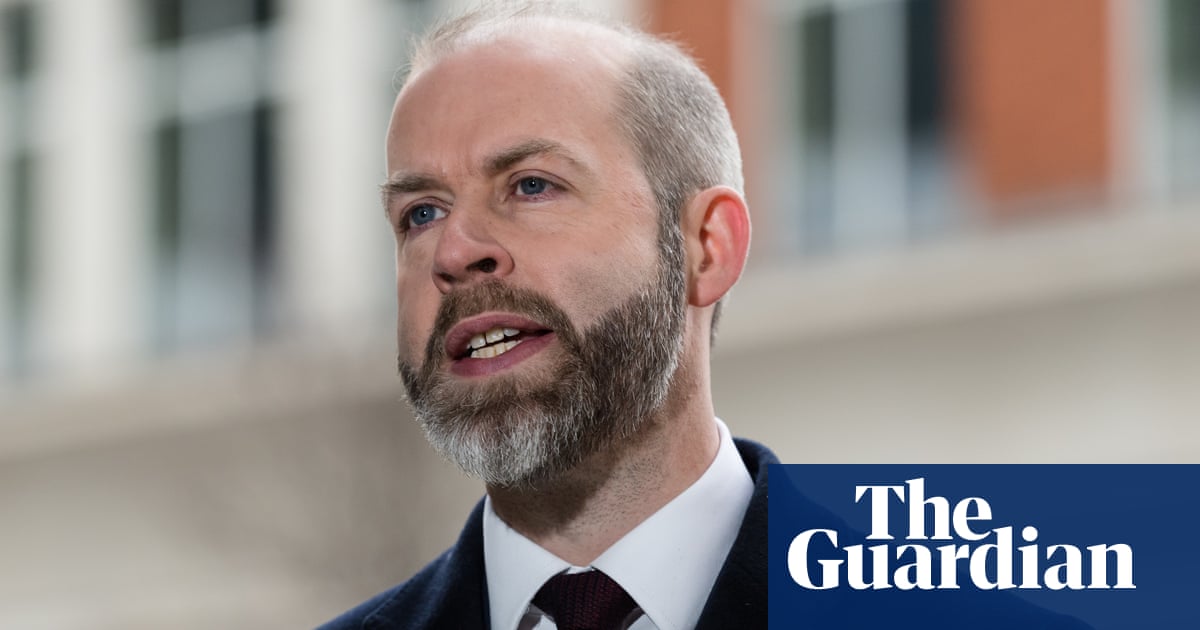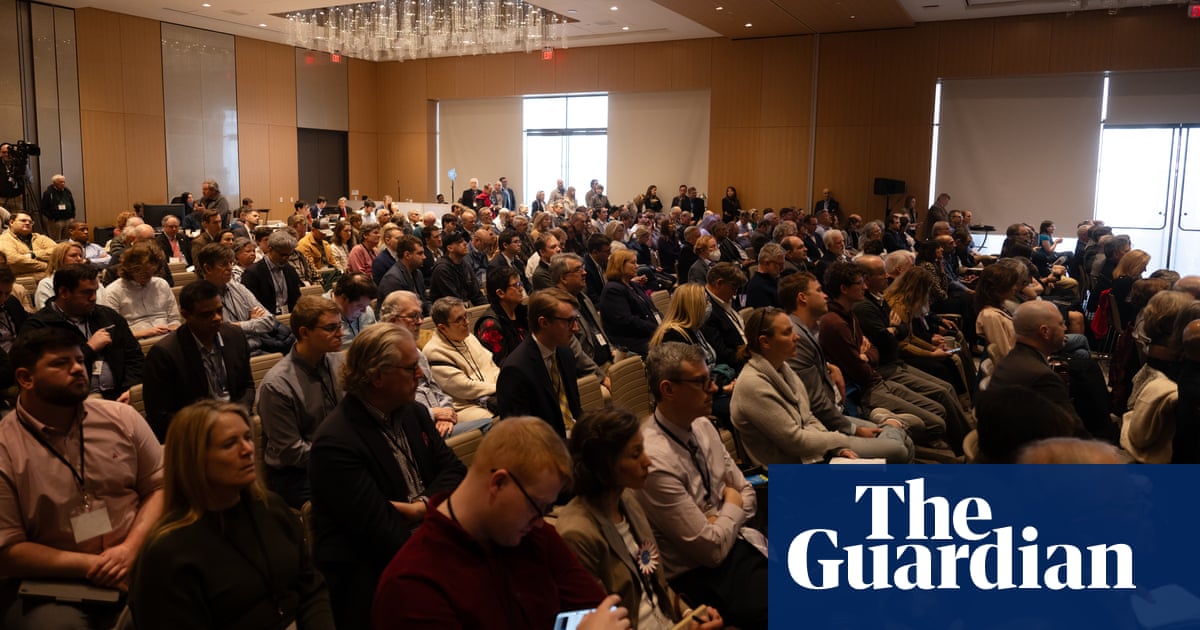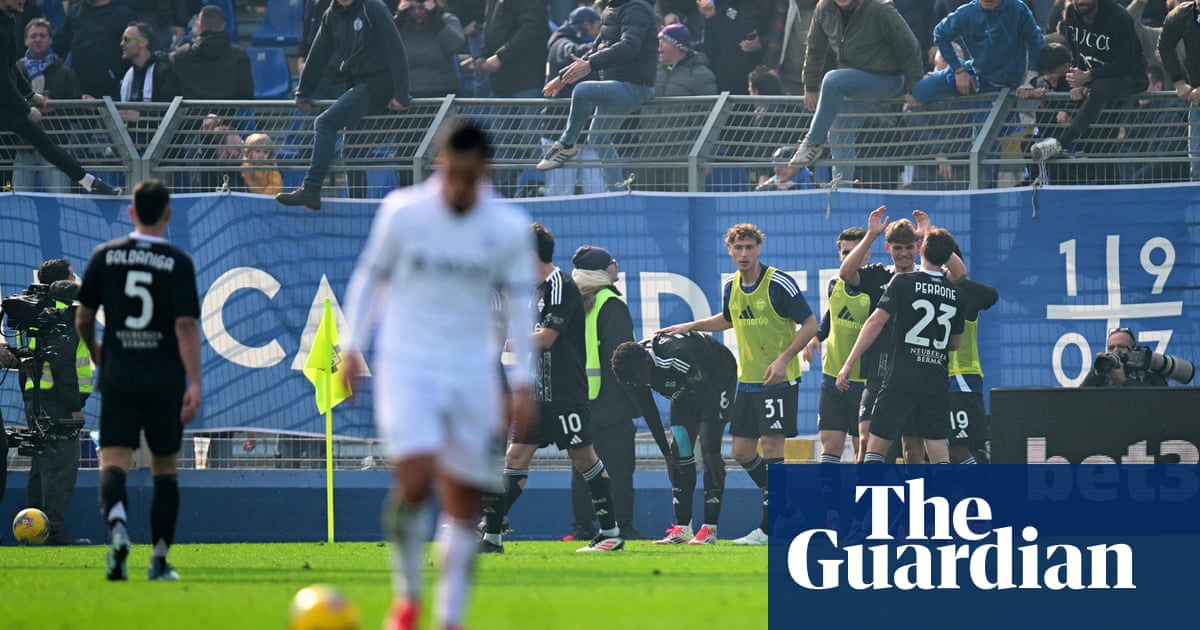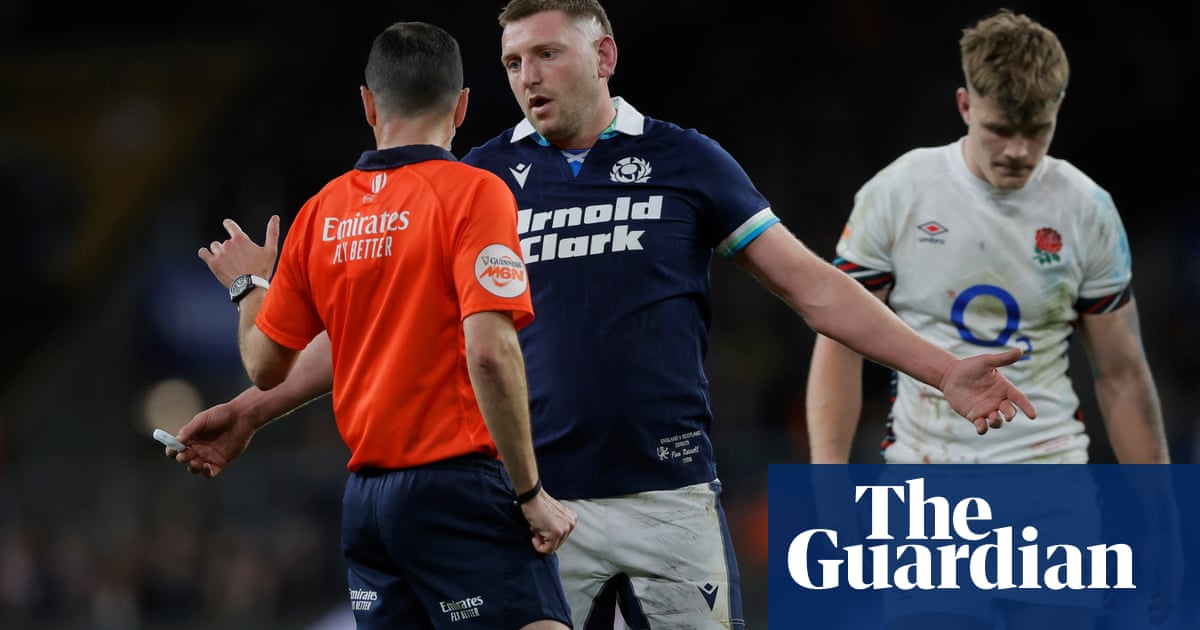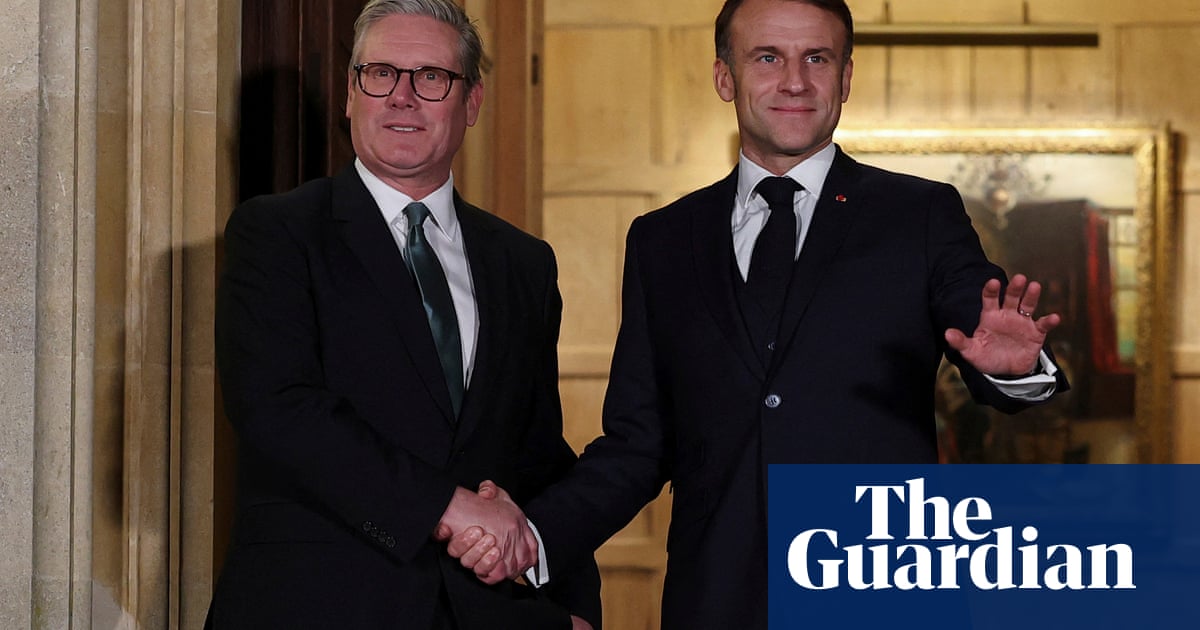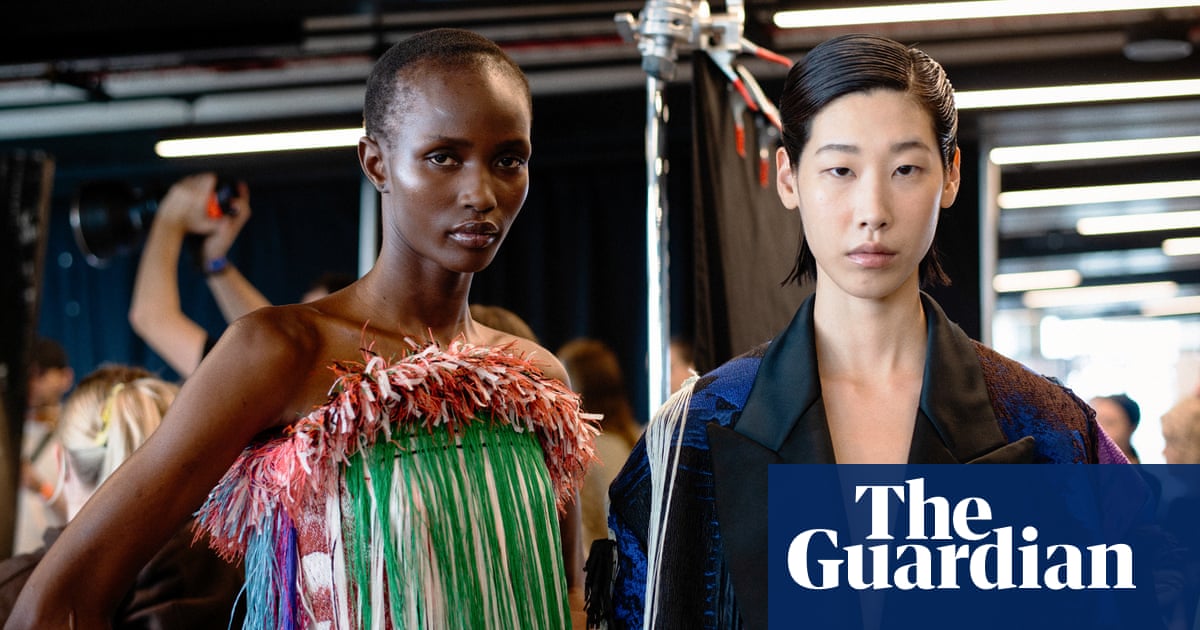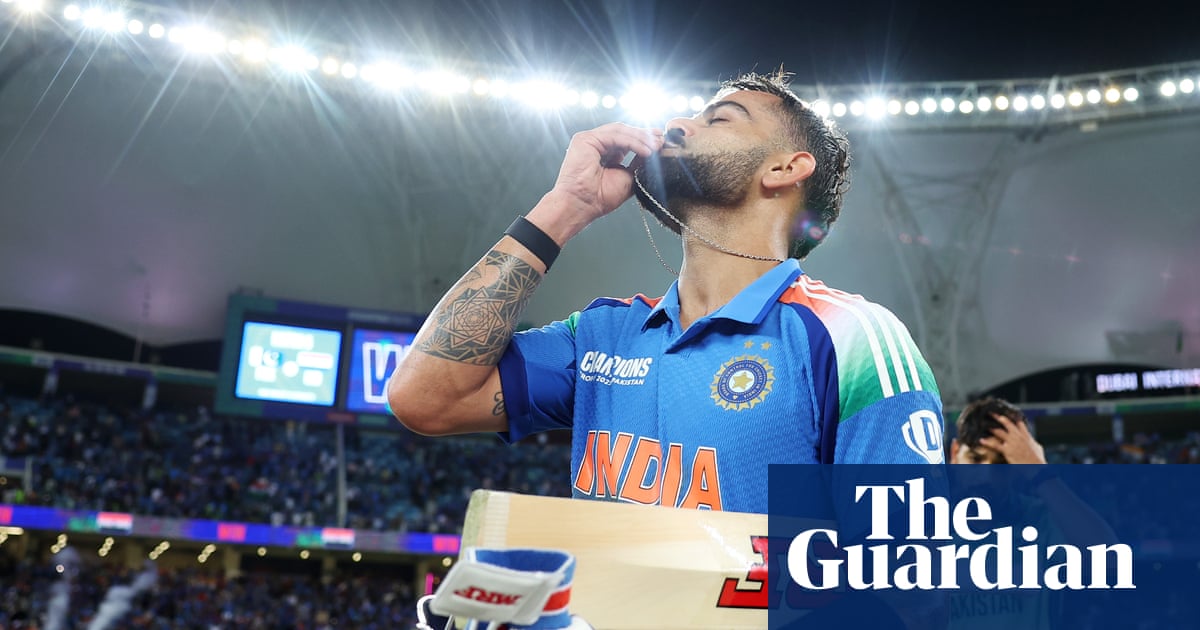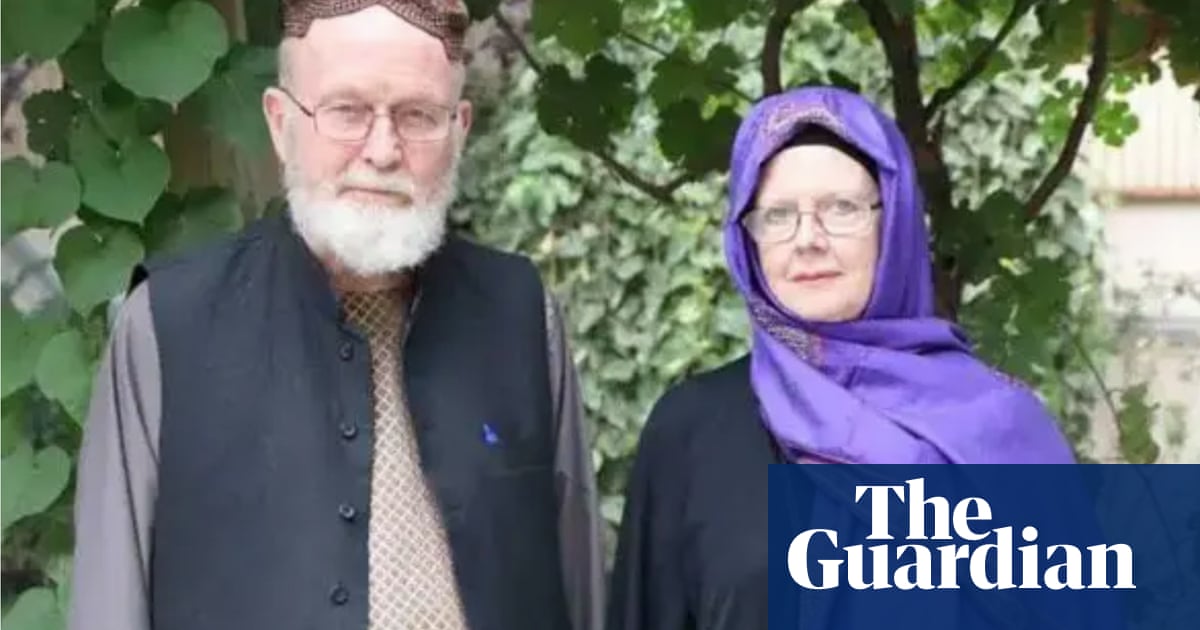There are certain fixed rules in scriptwriting. These are laid down by the kind of guru-led Californian movie masterclasses designed to help frat boys and slackers produce endless identical pitches, usually starring a troubled Nicolas Cage reuniting his family by machine-gunning central European men on yachts.
Introduce conflict. Make your chief protagonist complex but also likable, perhaps by having them wear a hat or sunglasses. Have a climax where your two main characters climb a tall structure to stage a dramatic shootout, thereby symbolising moral jeopardy, and also the climbing of tall structures. Above all remember that every successful Hollywood movie can basically be summarised with the phrase “Daddy, I love you”, from Casablanca to Star Wars to Top Gun.
The most accurate truism is that all characters need a wound. Not a literal wound, like a sore or pustule. An emotional wound. Wounds give pathos and relatability. With this in mind it has been fascinating to watch Manchester City, also a big-budget entertainment product, achieve something new in the past few weeks.
What has happened is City have become interesting. Not just to their fans, but to the neutral. City are suddenly underdog-ish. They have depth and pathos. It the most stunning brand pivot, perhaps even a final victory for the project.
This might have been unlikely during the era of brilliantly executed billionaire-ball. We will be more efficient. We will spend more. We will install the best bolt-on intelligence unit on the planet. This is all admirable. But it is also essentially dull, a cold project in a hot sport, a product not of obsession or mania or wasteful luck, but of planning and political will. The only way a project this powerful can be interesting is by failing.
City were interesting when Pep Guardiola “over-thought” some big games. They were beautiful to watch during the high false 9 era, perhaps even the best team ever seen in England. Then they just bought a really good striker and won, logically. Does anyone remember the treble? It definitely happened.

And so now we have this – City struggling, bits falling off, fighting the world on so many fronts. Guardiola, in particular, is mesmerising right now, public face of a club under the most unbearable macro-pressure, scalp clawed and bruised, tender skinny limbs flailing on his touchline, and returned to his natural state as a trouser-splitting, tiny-cubes-of-cheese-eating avatar of obsession.
Every City game is an absolute must-watch, days leading up ticked off on the calendar, to the extent I wish they were playing Ipswich on Sunday not Liverpool, which kind of feels like overkill. To be fair City’s fans also seem some way off a state of meltdown, taking it with a gallows-humour shrug, attuned culturally to a sense of lurking disaster even in the brightest sunshine.
Sport has to feel like this. It has to be brutal, uncooperative and painfully eked out. Perhaps this is also why rules exist and it’s not just a free-for-all. In the end this is where the sporting interest lies, in struggle and limits; not so much in wanting a thing and then efficiently and inevitably acquiring it.
This is a roundabout way of getting on to the related big issue of the week, Mohamed Salah’s unsigned contract at Liverpool. Naturally Liverpool’s supporters want their best player to stay. Neutrals will also want that. Salah is a gift to the league, a genius-level scurrying cartoon mouse of a footballer, a brilliantly inventive finisher now with added creative free radical gears. He seems nice. The six-pack is astonishingly defined, like a Victorian anatomical drawing. Even his hair has grown back.
But it also makes sense not to offer Salah what he wants, which appears to be a three-year contract worth at least £300,000 a week. This would be economically rational behaviour, a symptom of a functioning league doing the sums and just saying no. What is the actual problem here? In the end it leads back to the Saudi league, where it is logical to pay over the odds for talent and fame because this is, at bottom, public relations, not sport.
The one thing the Premier League has that makes it more robust and more real is that it is the opposite of this, that it must be hard-nosed and astringently fact-based. So Liverpool may think, we have got amazing value out of this player. But we are also an entity based on numbers, value and process. All of those things say: be careful with a 32-year-old high-earner without much resale value.
And really we should be grateful for this. One criticism of US owners is that they will try to turn football into entertainment content: actors brushing their teeth near Mauricio Pochettino, rock-and-roll dictator-supplicant Noel Gallagher in the comms box, Ed Sheeran banter-hugging Jamie Redknapp by a plinth (telling him to go away is Redknapp’s best work since the early Skechers ads).
Liverpool are saying we have limits. And whether we agree or not, they are at least behaving in a way that makes sense. Hit me up with that sweet, sweet sporting logic. Inject your reality into my over-stimulated eyeballs.
The narrower question is whether this really is rational in a sporting sense. Can it ever make sense to let your star attacker leave? Winning is surely everything in the end. Salah is operating at a rare peak right now. Which non-ruinous new signing could effectively replace him?

On the other hand, sporting institutions also have a duty to look beyond the present, to understand that the thing happening right now is not the thing that will always happen. Salah is super-fit. But has there ever been a massive late-career contract that worked out?
Liverpool beat Real Madrid this week thanks to key contributions from others. One academy player saved a penalty. Another shut out a gálactico. Another dominated a midfield where Jude Bellingham had set off in such regal fashion you expected to look up and notice he’s being followed by a set of hounds and a bowler-hatted valet, but ended it trailing dutifully after Curtis Jones.
It is still likely some kind of late compromise will be reached. Salah is entitled to weigh up his own value. Liverpool are entitled to prioritise teams not stars, even very effective ones. What the contract fudge tells us, like City’s state of flux, is that something here is at least still real and robust, driven by hard calculations, the opposite of leisure product, football as an endless Abba greatest hits world tour.
The other point is that this is still basically Jürgen Klopp’s Liverpool, albeit stitched and trimmed and pulled into shape by Arne Slot. Klopp has been treated a bit roughly of late, portrayed in retrospect as some kind of chaotic and dissolute disaster poet, sipping from his absinthe beaker, throwing together a collection of limbs and chucking a bolt of lighting through it, only to be rescued from chaos by a likable forensic Dutchman.
In reality Klopp was also a hugely successful and organised coach. It wasn’t just mudwrestling. And the players are still almost entirely his players, the best moments of attack are still Klopp patterns, wisely nurtured by Slot, who is smart enough to avoid some kind of instant ego-rebuild. The real test will come when the chief Klopp pegs, Salah, Virgil van Dijk, Trent Alexander-Arnold, need to be replaced.
From here, Sunday’s meeting at Anfield is nicely poised, with two potentially appealing outcomes. City settle down, conquer their unaccustomed adversity and enjoy the most interesting winning season in their modern history. Or Liverpool stride on and Salah gets to leave with a note of bracing pathos. Both speak to that strangely resilient thing, the sense of a robust sporting heart still beating inside this chaotic construct, a place where limits, struggle and boundaries can still give sport meaning.

 2 months ago
46
2 months ago
46
